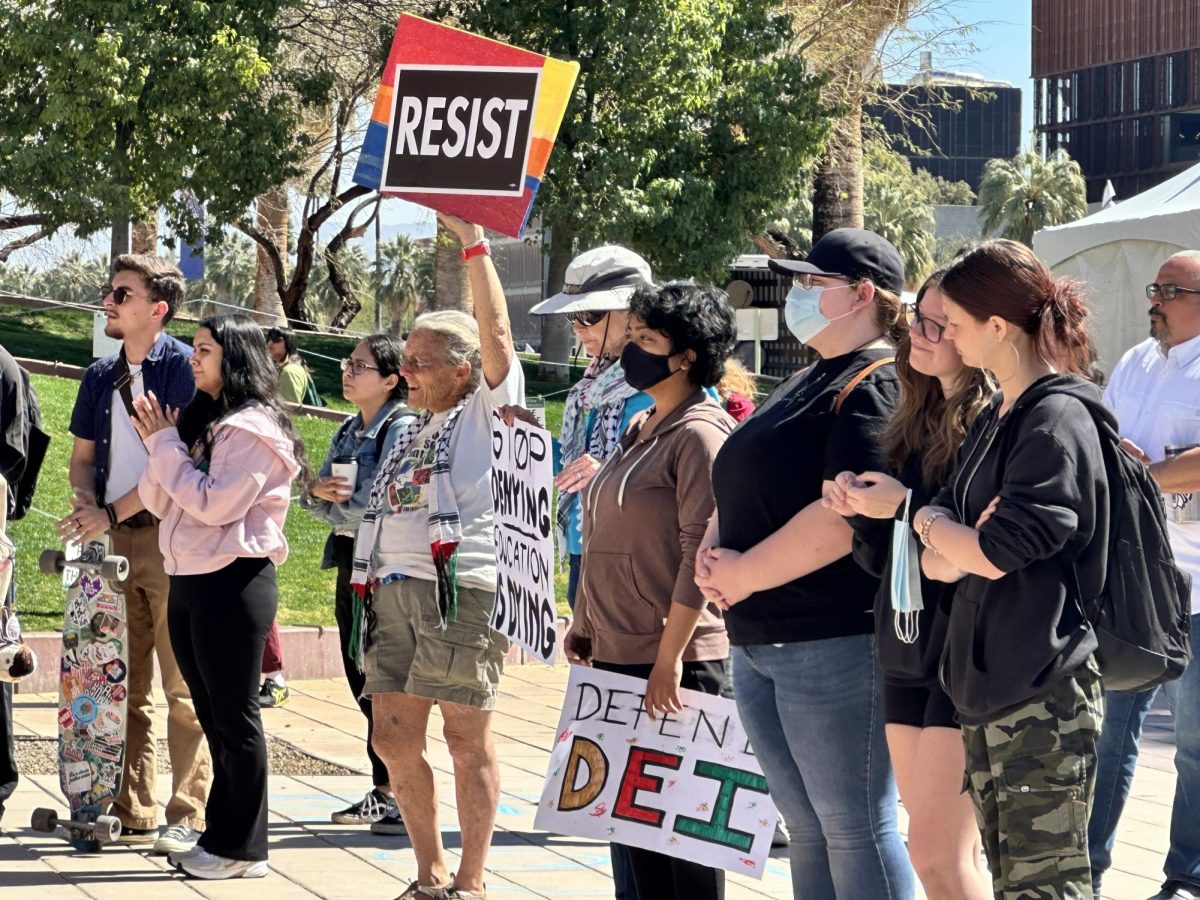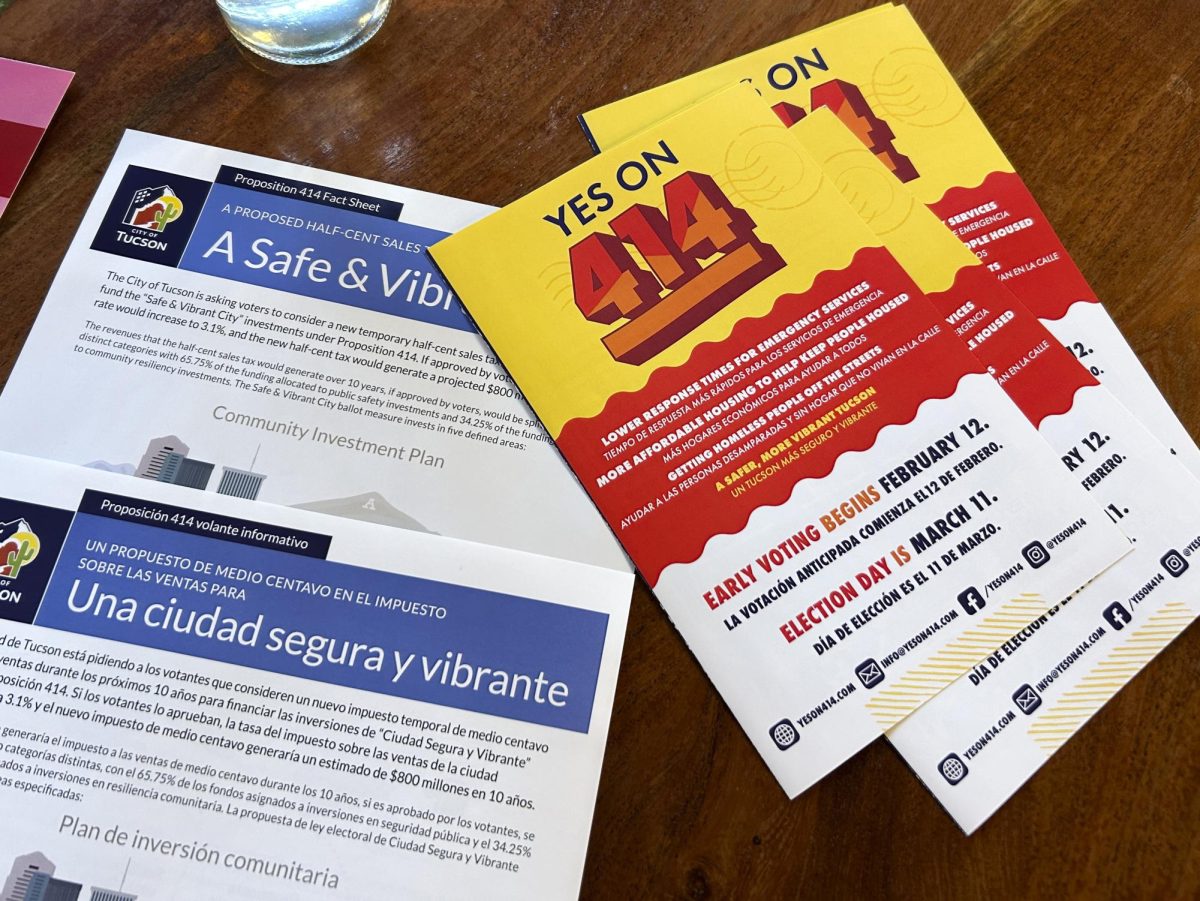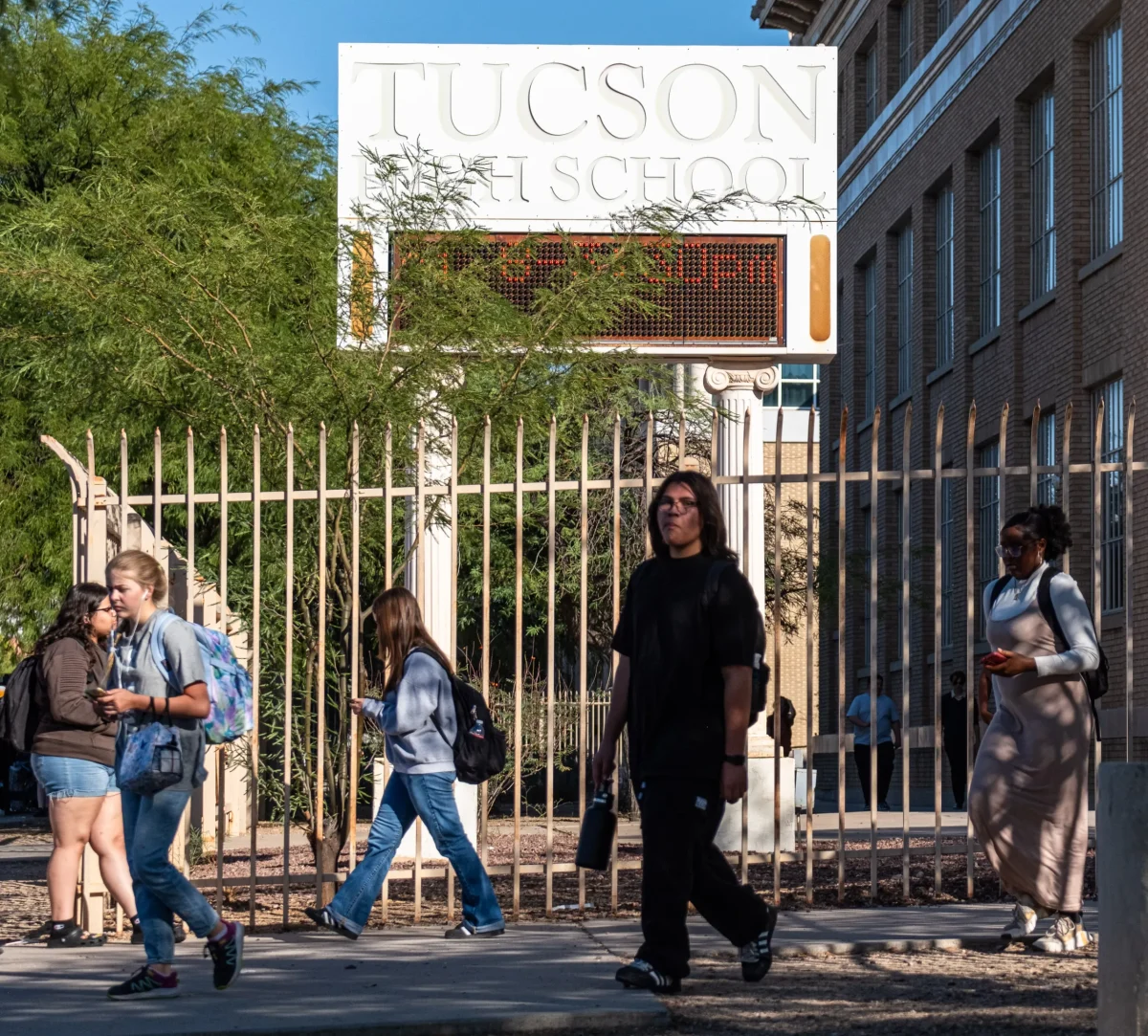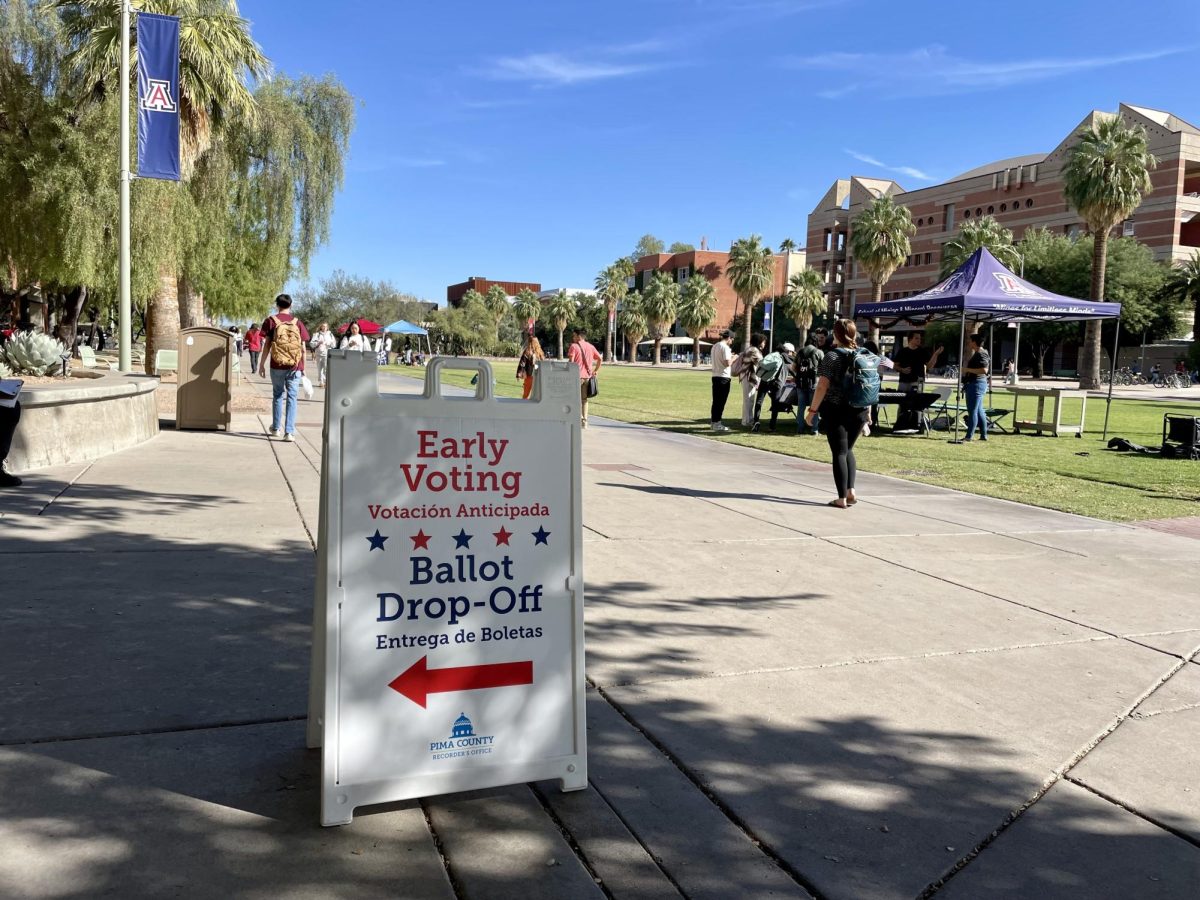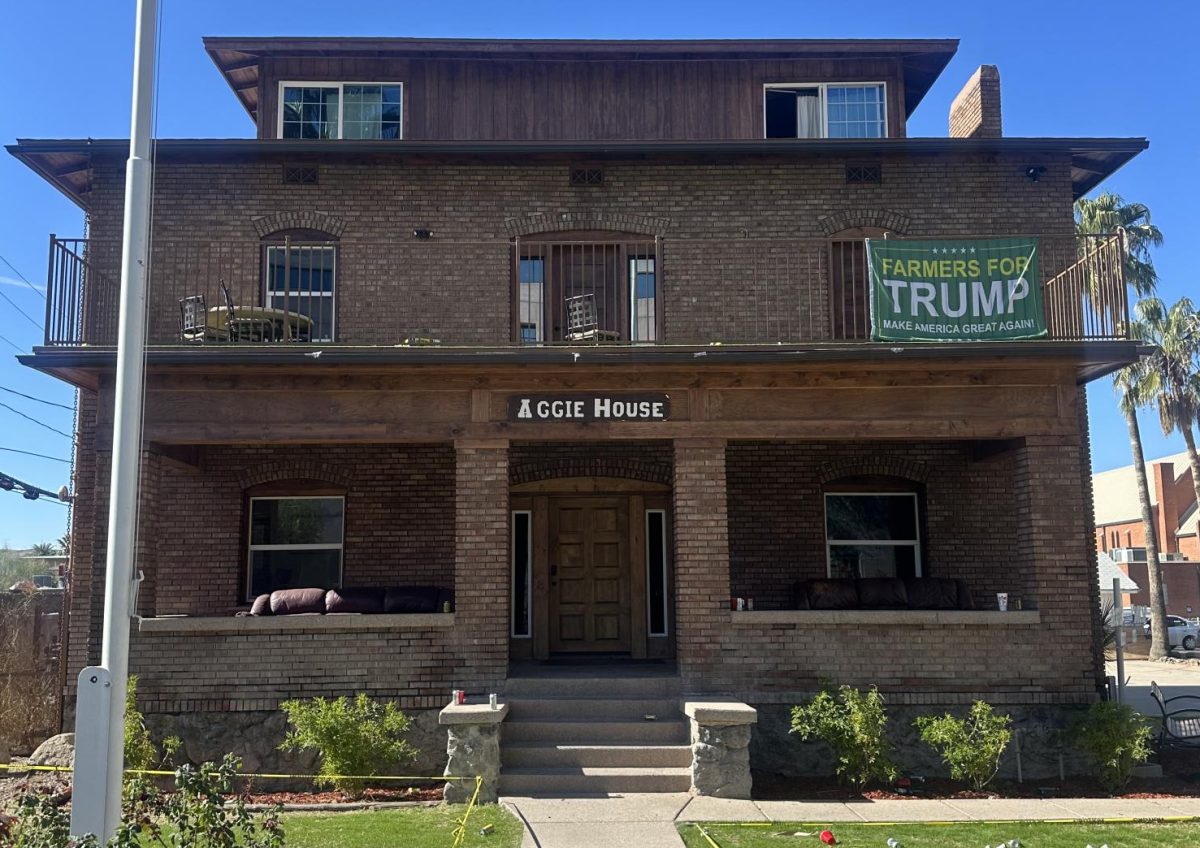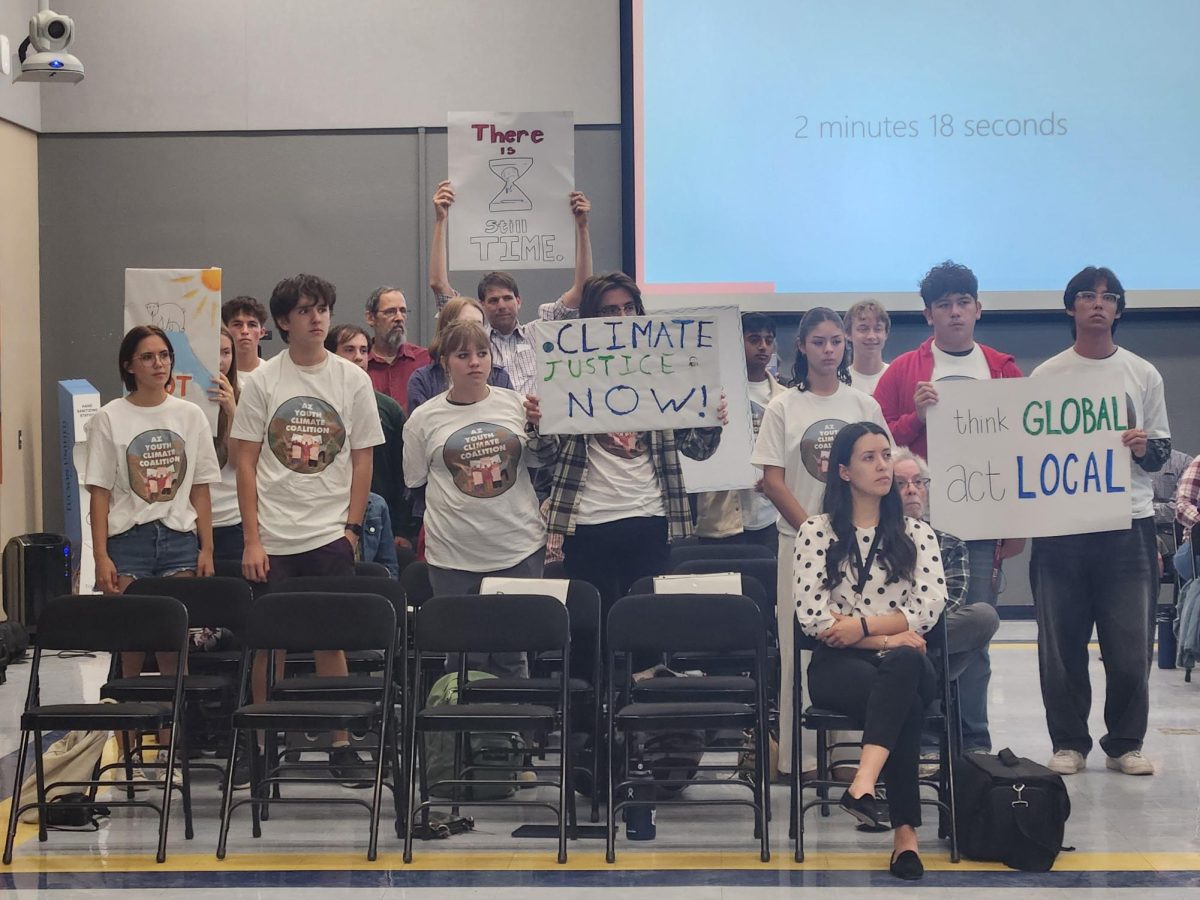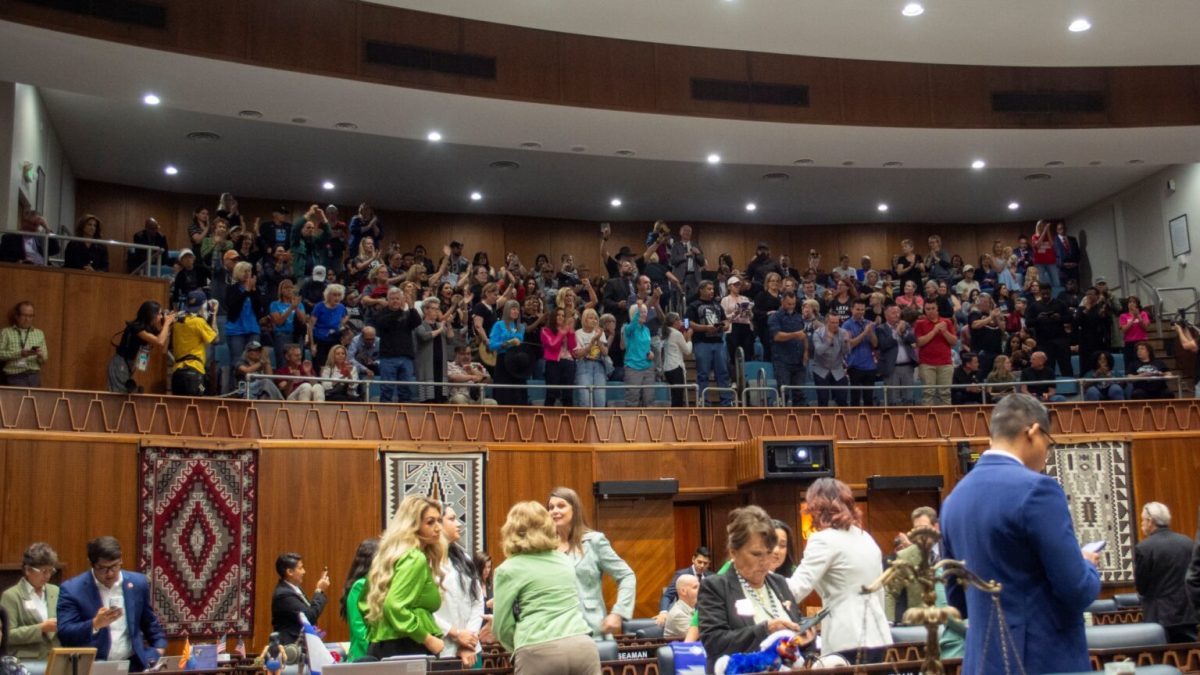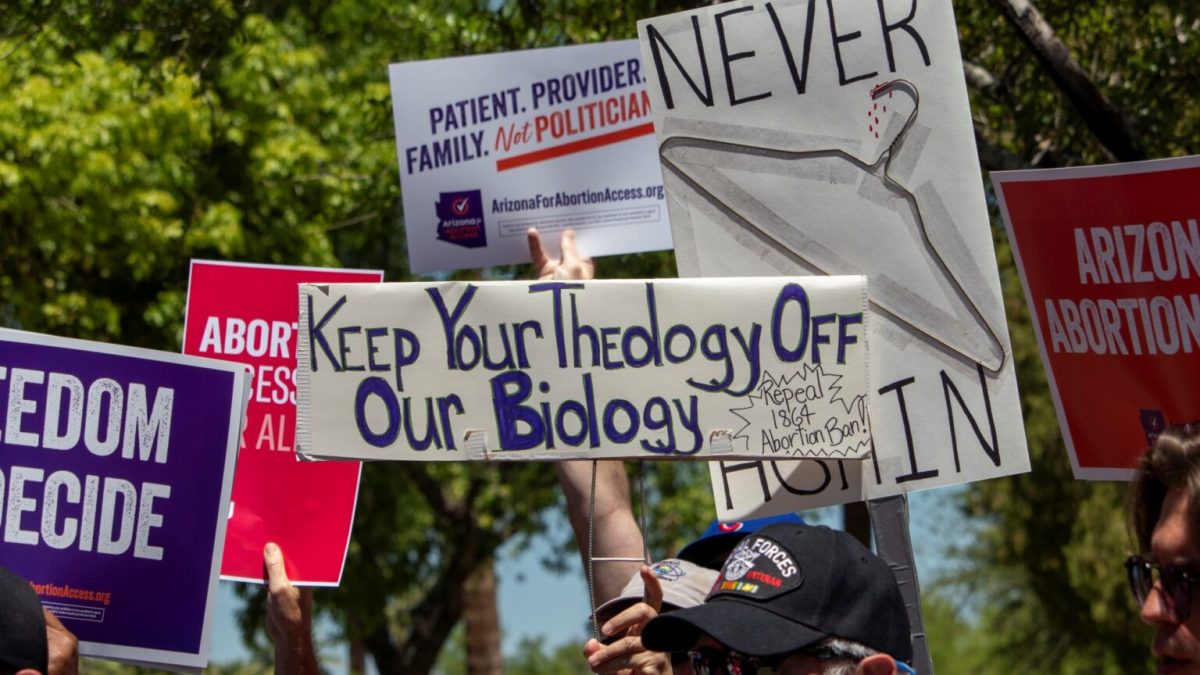Arizona Democrats are calling on President Joe Biden to pass the “strongest-ever” federal clean air regulations as Republican proposals in the state legislature continue to threaten efforts to reduce pollution.
In a press conference on Tuesday, Sens. Flavio Bravo and Juan Mendez were joined by advocates for environmental justice and public health as they urged the Environmental Protection Agency to finalize its proposed clean car standards this month to better support a nationwide movement towards electric vehicles.
Last April, EPA proposed “ambitious” standards to reduce harmful emissions from cars and trucks starting with model year 2027, encouraging a gradual move towards an emissions free future. The proposed regulations include reductions to tailpipe emissions that would ensure that a larger percentage of the new cars sold in the U.S. are all-electric by 2032.
The EPA projects that, through 2055, the standards would avoid nearly 10 billion tons of CO2 emissions — more than twice the emissions produced by the U.S. in 2022.
Mendez said the transition to electric cars that produce less emissions is not only an environmental imperative, but also an economic opportunity that would benefit all Arizonans. The switch is predicted to generate over “thousands of new, well-paying jobs” and attract big investors to the state, he said..
“What’s truly remarkable is that, already, 78% of these investments have been announced since January 2021, signaling a clear trend towards sustainable transportation solutions,” Mendez said.
A year ago, LG announced that it would be investing $5.5 billion to build a battery manufacturing complex in Queen Creek to produce electric vehicle batteries. A few months later, in June 2023, the U.S. Department of Energy announced its plan to loan KORE Power $850 million to build a battery cell manufacturing plant in Buckeye.
And with new manufacturing facilities comes thousands of jobs for Arizonans, the senators said. Bravo said that, as of 2022, there were over 61,500 Arizonans working in clean energy — a figure that has only grown since then.
However, to get the most out of this influx of economic interest in our state, Mendez said Arizona needs federal regulations that support a shift away from polluting gas-powered vehicles.
“To fully realize the potential of this economic opportunity, we need to increase our speed on Route Zero,” Mendez said. “That’s why, today, we are calling on the EPA and the Biden administration to strengthen clean car standards, ensuring the strongest possible vehicle pollution safeguards for automobiles that are going to be produced from 2027 through 2032.”
Route Zero is a nationwide initiative geared at eliminating automobile emissions while promoting eco-friendly transportation and policy on both the state and federal levels. It refers to the end goal of “zero emissions,” or reaching a balance between the amount of greenhouse gas emissions produced and the amount that is removed from the Earth’s atmosphere.
The current abundance of greenhouse gasses in our atmosphere has led to the warming of the planet’s surface, placing every ecosystem in danger.
Environmental advocates have rallied behind calls for a switch to electric vehicles in recent years as-powered cars are one of the largest contributors to greenhouse gasses in America. The U.S. Department of Energy estimates that the average gas-powered vehicle creates nearly five times the amount of emissions than the typical electric vehicle produces each year. The disparity is even greater in Arizona, where it’s estimated that gas-powered vehicles emit six times as much CO2 as electric vehicles.
However, Mendez emphasized that this transition requires more action than simply opting for a new set of electric wheels and limiting pollution from gas-powered vehicles.
“Our journey to zero emissions doesn’t stop at clean car standards. We must also invest in electric vehicle infrastructure, including charging stations and grid updates,” Mendez said.
As a start, the federal government began showing its support for a greener future for America’s roads in November 2021, when it invested $7.5 billion in creating a national network of 500,000 electric vehicle chargers through the Bipartisan Infrastructure Law.
But Biden has since indicated that he intends to roll back parts of the EPA proposal to limit tailpipe emissions, giving car manufacturers more time to limit the amount of emissions produced by the total amount of cars they sell.
The Biden administration’s hesitation to finalize the EPA’s proposal has opened the door for state-level opposition, like those in Arizona that work to end vehicle emissions testing and monitoring altogether.
The senators were joined by Ylenia Aguilar, environmental advocate and southwest organizer for Moms Clean Air Force, and nurse Paloma Greenwald of the Alliance of Nurses for Healthy Environments, who both offered insight into the importance of clean air regulations outside of the economic impact.
Greenwald said that as a health professional, she sees the impact air pollution has on her patients every day, and knows that communities are desperate for relief.
“These stronger federal standards will significantly reduce air pollution, fine particles in the air that can wreak havoc on our health, and lead to better health outcomes, particularly for children and vulnerable populations,” she said. “That is why we need the EPA to finalize these clean car standards this month.”
According to the American Lung Association, Black and Brown communities are disproportionately impacted by pollution, with a higher risk of premature death by particle pollution than white communities.
Aguilar stressed the urgency of the issue considering its impact on the nation’s most vulnerable communities, calling the EPA’s proposed standards a key part in the efforts to address environmentally caused health issues.
“We’ve accepted this status quo of living with dirty, harmful air for too long, and now we have an excellent tool to improve that – and we need it done now,” she said.



